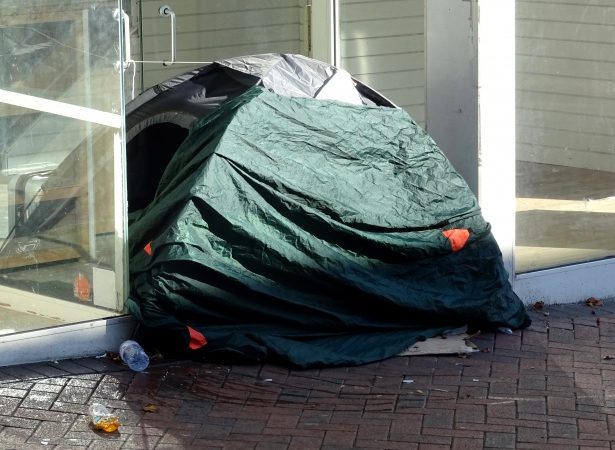A new parliamentary report sets out the shocking state of housing precarity - and demands immediate action.

MPs have called on the government to ‘end rough sleeping once and for all’, in a shocking new report on the state of homelessness in the UK.
The interim report from the Communities and Local Government Select Committee draws on submissions from over 300 people and organisations – including surveys of thousands of people by 38 Degrees and Generation Rent.
MPs on the committee say there is now a ‘golden opportunity’ to capitalise on the coronavirus lockdown measures, which saw 90% of rough sleepers taken off the streets and given accommodation. However, there are concerns that this support is already being withdrawn – meaning urgent action is needed amid the crisis.
The report reveals some shocking figures on the pressures faced by rough sleepers:
“Rough sleepers are 17 times more likely to be a victim of violence, according to research by Crisis. Women are especially vulnerable, as one in four are sexually assaulted while rough sleeping.
“A recent study found that homeless people housed in London’s hostels are 25 times more likely to die from coronavirus than the general adult population. This is against a backdrop of increased homelessness deaths: the Office for National Statistics found that 2018 saw the biggest annual increase of deaths, and that estimated deaths in England and Wales had increased by 51% between 2013 and 2018. The streets are dangerous at the best of times.” These are not the best of times.
And the MPs shed more light on the precariousness of renting in the UK amid the pandemic:
“Renters are much more likely to suffer from the immediate economic impact of the coronavirus crisis, compared to homeowners. On average, renters spend more than homeowners on housing, have less savings, are more likely to work in sectors directly affected by social distancing, are less likely to be able to work with schools closed, and are less likely to be able to work from home.
“The House of Commons Library estimates that around 43% of social renters and 37% of private renters are in relative poverty after housing costs. A plethora of studies have shown renters are struggling. Citizens Advice estimated that around 2.6 million private renters at the beginning of April had already missed a rent payment or expect to do so. Shelter predicted that 1.7 million renters may be unemployed by the end of July. Figures on rent collection from April found that only 44% of residential rent was collected on time, whereas in 2019 the average was 79%.”
To tackle the homelessness crisis, an estimated 90,000 social rented homes needed every year for the next ten years. Last year, just 6,287 social rented homes were built in England.
Due to the economic impact of the pandemic, the committee note that around 1.7 million of 11 million private renters might be unemployed by the end of July.
A majority of respondents to a Generation Rent survey in the run up to the report were concerned about being evicted in the next six months: a quarter (25%) were very worried and a further third (33%) were somewhat worried.
Renters told the campaign group: “It seems the only thing that’s keeping us in a house is the lockdown otherwise they would be getting [an] eviction order.”
Another said: “I had received an eviction notice for the 18th of March but had not found anything. Then with the pandemic and the lock down my landlady allowed me to stay; however due to my complete loss of income I am having sleepless nights about what will happen once the lock down is lifted.
One rented added: “The uncertainty is a real concern. We won’t have any money after all this so won’t have enough money to be able to take on another tenancy.”
Recommendations from the local government committee include:
1. Government must provide £100m a year to councils to ‘end rough sleeping once and for all’.
2. Targeted grant funding is needed for councils and housing associations to acquire properties for those at risk or homeless.
3. The 1985 Housing Act should be amended to allow judges discretion to stop ‘Section 21’ evictions over rent arrears, as a result of the coronavirus crisis. “The Government should introduce a short Bill as soon as possible”. The committee has drafted ready-to-go legislation.
4. The Government must accelerate its plans to introduce the Renters’ Reform Bill to Parliament and abolish ‘no fault evictions’ under section 21 of the Housing Act 1988 within the next 12 months.
The Committee have set a tight two week deadline for a government response – to move the issue of rough sleeping and homelessness up the agenda before the pandemic is over.
Josiah Mortimer is co-editor of Left Foot Forward. Read the report here.
To reach hundreds of thousands of new readers we need to grow our donor base substantially.
That's why in 2024, we are seeking to generate 150 additional regular donors to support Left Foot Forward's work.
We still need another 117 people to donate to hit the target. You can help. Donate today.



